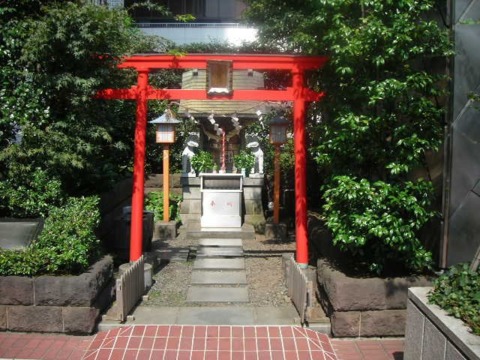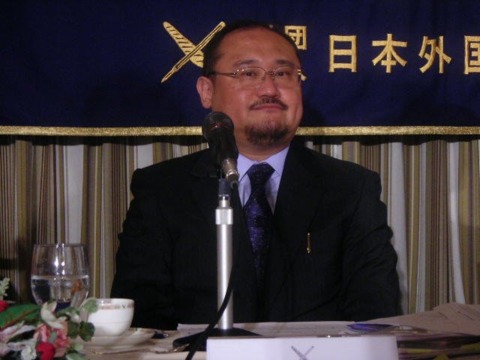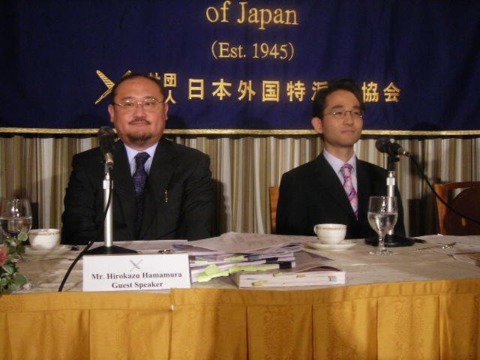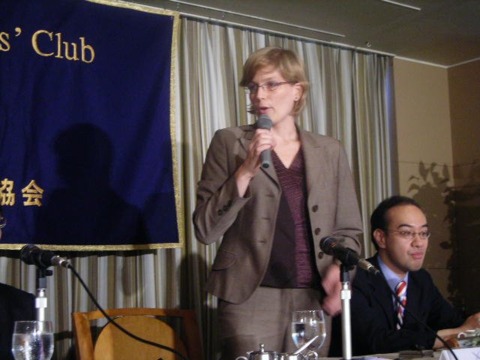TGS 06: Kamide vs. Hamamura
Two of the most game-savvy men in the world, financial analyst Hiroshi Kamide and Enterbrain pres Hirokazu Hamamura, weigh in on the next-generation console battle--and reach a consensus. And the winner is...
TOKYO--The days leading up to the Tokyo Game show have already seen the Xbox 360 Media Briefing, an event that set out Microsoft's next-generation console strategy in bold strokes. Yesterday, a far more low-key, but no less important event took place. The Foreign Correspondents Club of Japan held a professional luncheon with two of the game industry's most knowledgeable experts: Enterbrain president Hirokazu Hamamura and KBC Securities research director Hiroshi Kamide.
Both are widely quoted individuals whose opinions carry significant weight among their respective constituencies--Enterbrain publishes the widely read weekly game magazine Famitsu, while Kamide covers the game sector for KBC and is often quoted in newspaper and magazine articles read in Japan as well as in the West.
The luncheon was held in an area of Tokyo that straddles the Marunouchi business district and celebrated Ginza area. This neighborhood is eccentric to say the least. Amid the buttoned-down, suited masses shuffling to work, you can find a series of bizarre cow sculptures, apparently placed as part of an art-in-the-street campaign.
A Shinto shrine guarded by two stone foxes grace the front of the glass and concrete pillar that is the Yurakucho Denki Building, where the FCCJ's offices are housed. Further underlining the contrast between the two districts--or perhaps offering an attempt at harmonizing the two areas--is the lush green grounds of the Imperial Palace, located just a block or two from the venue.
About 25 guests, including journalists from The Wall Street Journal, Bloomberg wire service, and London's Guardian newspaper, feasted on sautéed salmon or roast beef sandwiches in the club dining room. Wolf Blass Bilyara Chardonnay and Mommessin Cotes-du-Rhone wines were also supplied, possibly to encourage guests to freely speak their mind about the upcoming battle royale in the Japan game industry.

After the gastronomic activities concluded, it was time for a photo op. A number of bright studio-sized lights were focused on the two men to facilitate the taking of snaps. And then, with a few words of introduction from Birga Becker, moderator for the event, the gloves came off and the talk began. While much territory was covered, the core of the conversation dealt with a topic on most gamers' minds--the three-way competition between Microsoft, Nintendo, and Sony.
Hamamura fired the opening shots, beginning with a slide presentation and speech that incorporated some of the vast raw data and projections the Enterbrain organization puts into its yearly gaming white paper.
He gave an overview of the Japanese game market, which is currently booming, thanks to traction from the Nintendo DS.
"With 10 million units sold to date, this is the fastest growing console in the Japanese market," he said. "No console has ever exceeded 19 million units, but I think the DS will." The success of the DS may be due more to an overall and evolutionally trend than Nintendo's genius.
Just as small, agile mammals replaced the enormous dinosaurs, Hamamura's figures show handhelds have been steadily devouring market share over the last four years. This share grew from 25 percent in 2002 to about 45 percent in 2005--before jumping to more than 60 percent as of July 2006. But this phenomenon has happened before in Japan.

"You can compare this with the emergence of mobile phones," he said. "Mobiles have been growing while fixed phones have not. The shift has been from one phone per household to one phone per person." He also stressed that much of the DS's success has been due to word of mouth--players finding a fun game and telling their friends about it. Due to these factors, Hamamura said, "I expect the DS to exceed 20 million, or maybe even 30 million in [worldwide] sales."
Hamamura then proceeded to dissect each of the next-generation consoles. He had a lot of praise for each, beginning with the Nintendo Wii, which he called a "sure bet" for the end of this year.
Hamamura believes the Wii will build on the word-of-mouth effect enjoyed by the DS to eventually reach 10 million units over its lifetime. Showing a graph of project sales curves for the current Nintendo consoles, he said, "The growth pattern will be very similar to what we've seen with the Game Boy Advance." That is to say, moderately paced, stable growth in sales.
"They will at least sell double the number they sold with the GameCube." He also pointed out that Wii's advertising campaign focuses on the players interacting with the hardware, not spectacular graphics.
Moving on, Hamamura then lavished praise on the PlayStation 3, outlining its features and "unparalleled graphics." However, he was not sure that these would guarantee it instant success. "In a poll we ran, 50 percent of the respondents said they wanted a PS3. But when asked if they could afford to buy one, most said they would wait for a price drop...In the case of the PlayStation 2, the DVD player was a very attractive feature. But I don't think the Blu-ray feature in the PS3 is as attractive now as DVD was then."
Hamamura feels that growth in the sales of the PS3 will coincide with price drops, with sales of about 9 to 10 million over the next few years. However, the key to the PS3 is its potential longevity. "The PS3 is two generations ahead of the competition technologically, and Sony says it envisions a 10 year life cycle for the system." With such a long life cycle, Hamamura said it could reach 15 million in sales in the Japanese market.
Regarding the 360, Hamamura noted that "sales have been quite low, unfortunately. Probably lower than the original Xbox." However, with the price cuts, HD-DVD player, and a slew of new, Japan-friendly software on the way, he didn't think things were all that bleak for the console. So, while he does not see the 360 playing a dominant role in Japan, he predicted sales will build to 1 or 2 million units.
To wrap up his presentation, Hamamura showed sales projections for software and hardware over the coming year. "If you figure in online gaming," he said, "the size of the Japanese market will reach an unprecedented level in 2006-07."
Hiroshi Kamide gave a very concise, informative speech, starting with an explanation of the stakes involved for each player. Although born in Japan, Kamide spent some 20 years living and studying in the UK. He spoke with authority to the audience as he laid out the historical facts.
"If we think back to when Nintendo first released a console--the Famicom--they managed to get a 90 percent market share. Right now, Sony with the PS2 has around a 70 percent market share in the industry with 15 percent each held by Microsoft and Nintendo. So, this is to say that this market is pretty lopsided. It's pretty much a case of winner takes all."
Kamide, however, was quick to add that the market is incredibly fickle.
"No manufacturer has ever dominated over two cycles of the hardware," he said. "So, in that respect, Sony is perhaps looking rather risky at the moment." This is not the only problem he sees with the PS3.
"Thirdly, I want to comment that pricing has always been an issue in this industry. Any game console that is a head above everybody else in terms of pricing has always failed." This is not to say the toppling of Sony is in any way certain. "At the moment, the games industry is at a bit of a crossroads. The strategies of Sony, Nintendo, and Microsoft are diverging quite significantly. It's quite hard to read what's going to happen going forward..."
Kamide feels growth potential is at its highest in casual gaming, "globally, not just in Japan."

He was not quite as optimistic about the state of the market as Hamamura: "Despite the market pie growing, by the looks of things, costs are escalating significantly at the development and game companies. So to be fair, financial conditions and performance have actually been pretty poor for the past three years or so." Kamide said this explains why many companies have closed ranks, giving us the large number of mergers--Sammy Sega, Square Enix, and Bandai Namco to name a few.
Looking ahead to the next generation of hardware, Kamide saw a clear leader in terms of mindshare. "From a cost leadership perspective, as well as a product differentiation perspective [the Nintendo Wii] does look very attractive...It is so different from anything else we've seen before---it's designed to appeal to hardcore gamers and casual gamers alike...I think it's safe to say right now it is attracting most of the media as well as consumer interest."
As for Sony, Kamide asserted that while the price point was not attractive, "Sony must lose a ton of money every time one of these things walks out the shop." He said that barring "fantastic news from Kutaragi [at his TGS keynote speech] tomorrow," Sony will be playing catch up.
Regarding the Xbox 360, Kamide felt the pricing was about right and the online capability "a head above everybody else." According to Kamide, third-party support for the 360 in Japan is also a factor that bodes well, but he does not see the 360 making a big dent in the market here simply because Microsoft will focus on the US and EU markets (which have traditionally been its bread-and-butter regions).
"At the moment at least, it seems that the Wii does have the upper hand." But he stressed that "this won't happen over night. It's a five-year battle."

Commenting further on the Wii, which Kamide favors at the moment, he said it will act as a much needed revitalizing element in the market. "In order to really grow this market going forward and offer gamers and nongamers something new, somebody needed to take a risk and go with something completely new and innovative. Basically, there's only one player in this industry that can do that, and that's Nintendo."
While both experts agreed that the future is unclear, they both favored the Wii as at least the near- and mid-term winner. However, as the market becomes more diverse, it may become harder to see the various consoles as being in direct competition with each other.
Hamamura commented, "Users choose different consoles for different scenarios." The Wii, he holds, is more oriented for players who want to play with family and friends. The PS3 will appeal to gamers who want to indulge in a high-end experience. "The Wii is like beer; the PS3 is brandy."
Got a news tip or want to contact us directly? Email news@gamespot.com

Join the conversation